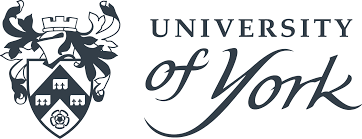University of York: Pandemic puts York at risk of sharp increase in poverty and inequality, according to new report
A new report has highlighted inequality, poverty and inadequate social care as the key challenges facing York as the City recovers from the pandemic.
A new report has highlighted inequality, poverty and inadequate social care as the key challenges facing York as the City recovers from the pandemic.
A view of York city centre
Image credit: Alex Holland, University of York
The York Human Rights City Network (YHRCN) report, written by authors including academics at the Centre for Applied Human Rights at the University of York, indicates that the pandemic has increased inequalities in the City, including widening the gender pay and educational achievement gaps.
Shortfall
The report has also found that the pandemic exacerbated poverty in York, illustrated by a sharp rise in the number of foodbanks and foodbank users, while rising demand for social care accompanied by a national shortfall in financial and human resources has created significant challenges in the City’s social care sector.
Lead author of the report, Professor Paul Gready from the Centre for Applied Human Rights, said: “While the pandemic may be receding, its legacy will be with us for years to come unless decisive action is taken at the local and national level”.
City centre
The authors of the study are also calling on City of York Council to reverse a permanent prohibition on Blue Badge vehicle access to pedestrianised streets in the city centre, implemented in 2021 in order to make way for the installation of anti-terrorism defences.
Professor Gready added: “We urge the Council Executive to engage with disability groups to genuinely co-produce a solution that guarantees both security and access. This has become a defining issue for who we are as a city – it is our belief that we are better than the current decision suggests.”
Creative
In 2017, the Lord Mayor of York declared York as the United Kingdom’s first Human Rights City. This declaration came following six years of preparation, and as a result of a creative partnership led by YHRCN, and involving City of York Council and other statutory services including the Police and Health Services.
The right to equality and non-discrimination is one of five human rights prioritised by York residents through a participatory consultation exercise. The other priorities are the right to education, housing, health and a decent standard of living.
Each year the YHRCN publishes an Indicator Report which links human rights to the everyday, by reporting on indicators which illustrate what is happening in relation to the five priority rights chosen by York residents.

